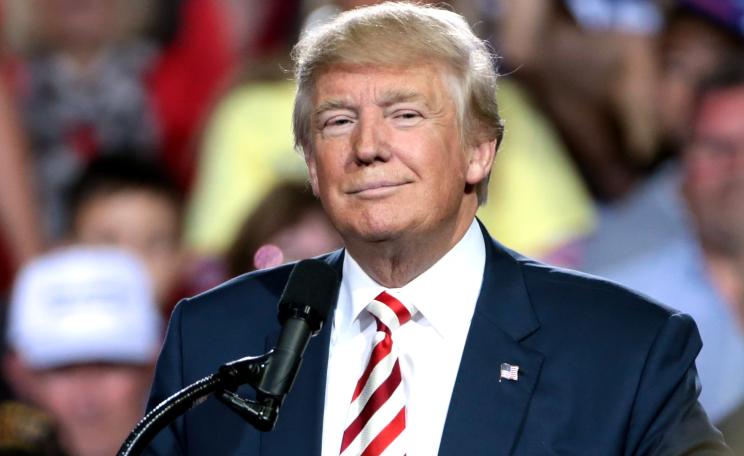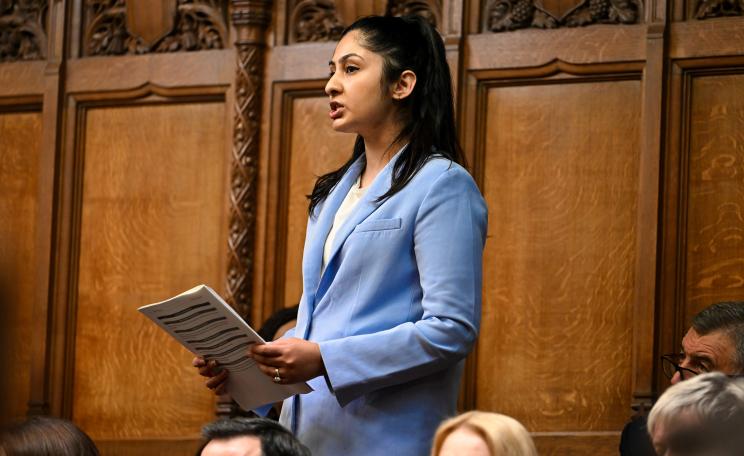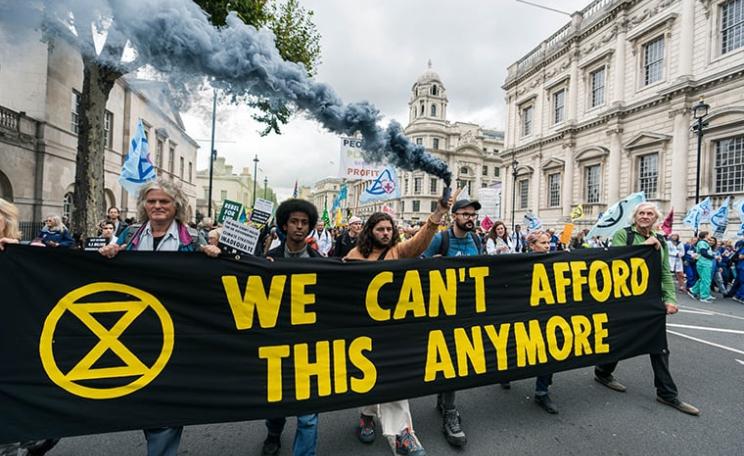There was sustained and rapturous applause at the Labour Party Conference in September 2022 as Keir Starmer, the leader of the opposition, announced that within the first year of establishng his government he would create Great British Energy (GBE).
This article first appeared in the latest issue of Resurgence & Ecologist magazine.
“Yes, Conference, Great British Energy will be publicly owned!”
The cheering grew louder. This was the Labour leader’s first definitive recognition of the need for public ownership in the UK’s failing energy system. The underwhelming details would only come later.
Undermine
Following the uncritical fanfare of journalists and commentators, Labour eventually gave some specifics of the pledge. GBE would be a new public company able to generate renewable energy itself while investing in private firms doing the same.
Founded with seed funding from Labour’s promised £8 billion National Wealth Fund, it would compete on the private market and use these revenue sources to grow to the size of the French energy company EDF (currently valued at around £40 billion).
This represents a big step forward on energy policy for Starmer. Left to its own devices, the private sector has abjectly failed to invest in the transition from fossil fuels to renewables. In a timid regulatory environment, private energy firms have extracted ungodly profits while customers’ bills have skyrocketed. The market has failed, but Labour is finally saying it is prepared to intervene.
Intervention of this kind, however, is unfortunately not enough. Because GBE would be competing in a private market against the current giants, it is unclear how it would be able to bring down bills as intended.
Its energy would still be sold on the vastly inflated international energy markets, and the incentive to generate revenue would undermine any impulse to absorb costs.
Economic
GBE’s imperative to build itself up over time also has worrying implications for the aim of decarbonisation. Labour plans to achieve net zero power by 2030, but if it started out as a small player, GBE would not be able to flood the market with renewables immediately.
Furthermore, the energy market is not just in generation – though this would be the extent of GBE’s limited remit. Consumers interact with private suppliers that skim off their share of profits, while the transmission of energy (a natural monopoly) has been privatised to create the most profitable sector in the UK.
Without extending the scope of GBE (or equivalents) to also include transmission and supply, public money would continue to leak out of the system in the form of profits for parasitic shareholders.
Even if Labour were to give GBE the scope and resources needed to make an immediate impact, a big problem would remain. In the context of climate and economic crises, there can be no role for either profit seeking or markets in the energy sector.

Flirting
Labour should commit to public ownership of the whole system.
This could look like a National Energy Agency setting standards and targets while owning nationally strategic sectors like nuclear, offshore wind, and oil and gas (throughout transition); regional and municipal agencies operating transmission and generation; and local cooperative generation free from competition with energy giants. Such an integrated, publicly owned system would allow for democratic planning whereby workers and communities would be given a say in how their skills and infrastructure were redeployed.
As industry changed, workers could also be guaranteed equivalent terms and conditions. Compare this to the private renewables industry infamous for eroding wages, driving down conditions and ending any collective bargaining.
Ahead of the next general election, Labour must differentiate its offer on energy from that of both the government and other parties. Since 2010, successive Conservative administrations have blocked the renewables transition by scrapping subsidies, selling off the green investment bank and erratically flirting with fracking.
System
The Liberal Democrats have promised to generate 80 per cent of electricity as renewables by 2030 (short of Labour) but have no ideas beyond reliance on the failed market. The Green Party has called for the Big Five suppliers to be brought into public ownership, along with net zero by 2030 for the whole economy.
Right now, these demands go further than Labour’s, but the Greens’ strength - promising the moon - flows from their weakness - interminable distance from power.
Like it or not, Starmer’s Labour is on the verge of government. Starmer is carving out a distinctly Fabian approach, characterised by readiness to make strong interventions in markets, but reluctance to supplant them entirely with public ownership.
On energy in particular, however, Labour must go further. Entering government would be a historic opportunity to resolve two great modern crises of capitalism: climate and energy. Labour can only do this by embracing public ownership of the entire energy system.
This Author
Chris Saltmarsh is a co-founder of Labour for a Green New Deal and is the author of Burnt: Fighting for Climate Justice. This article first appeared in the latest issue of Resurgence & Ecologist magazine.






